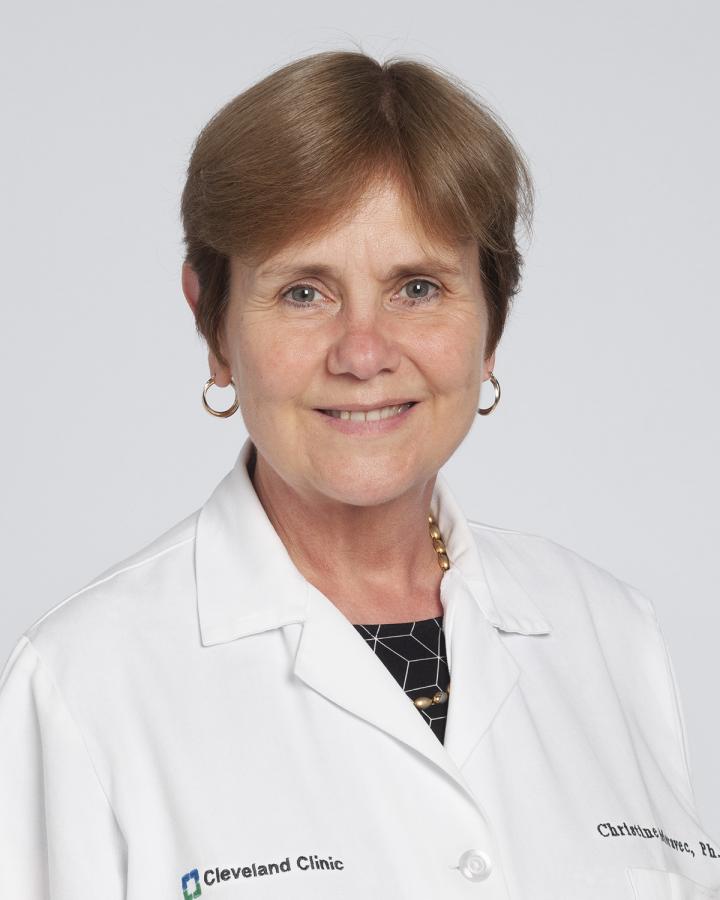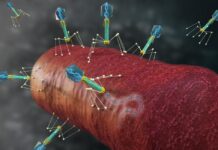
IMAGE: Cleveland State University and Cleveland Clinic Lerner Research Institute received a five-year, $1.2 million T32 training award from the National Institutes of Health to recruit underrepresented minority Ph.D. students and…
view more
Credit: Cleveland Clinic
July 2, 2020, CLEVELAND: At a time when the national conversation is focused on narrowing the gap of racial equity, two of Cleveland’s anchor institutions have been awarded grant funding that will help them turn words into action.
Cleveland State University and Cleveland Clinic Lerner Research Institute received a five-year, $1.2 million T32 training award from the National Institutes of Health to recruit underrepresented minority Ph.D. students and students underrepresented in the science and technology workforce.
The two institutions will recruit the students into their biomedical research programs, building a pipeline of minority scientists in the Cleveland area.
The grant is a collaborative initiative involving the joint graduate school programs of the two institutions. Meredith Bond, Ph.D., of Cleveland State, and Christine Moravec, Ph.D., of Lerner Research Institute, are co-principal investigators on the grant, titled “CD-Cavs: Cross-Disciplinary Cardiovascular Sciences Training to Diversify the STEM (science, technology, engineering and math) Workforce.”
“This is a new and exciting chapter for our institutions which have partnered for 50 years to train Ph.D. students for careers in biomedical sciences,” said Cleveland State University President Harlan Sands. “These students will benefit from the unique pairing of an urban university recognized for cutting-edge research and a world-renowned academic medical center to deliver an experience consistent with our mission of advancing both them and the larger research community.”
The grant comes amidst the backdrop of a broad national call for diversity and inclusion and underscores the role universities and hospitals have in doing more than just moving the conversation forward.
“At Cleveland Clinic inclusion is one of our core values. A program like this serves as an example of how we can infuse much- needed diversity into our research community,” said Cleveland Clinic CEO and President Tom Mihaljevic, M.D. “By bringing together individuals with different experiences and perspectives, we can capitalize on the diversity of thought that can lead to innovative approaches to address complex scientific questions. Along with our academic partner, we can work towards building a more robust scientific workforce reflective of the community at large and address long-standing structural racism that leads to healthcare disparities.”
According to the National Science Foundation, African Americans, Hispanics and Native Americans make up about 31% of the U.S. population but only represent 13% of those receiving doctorate degrees in science and engineering.
“Historically, there has been a lack of diversity in the scientific workforce, yet studies have shown that diversity increases creativity, promotes higher quality problem-solving and enhances innovation,” said Moravec, cardiovascular research scientist and director of Research Education and Training at Lerner Research Institute. “This grant will enable our institutions to work together to broaden the diversity, backgrounds, experiences and perspectives of those entering STEM fields and the biomedical research workforce.”
“This program is unique because students will benefit from the diverse student culture at Cleveland State while training in labs at CSU and at the top U.S hospital in the nation for cardiovascular care. The successful outcome of this grant will be 15 to 20 Ph.D. candidates from under-represented backgrounds, sharing the resources of both CSU and Cleveland Clinic, and joining the ranks of STEM professionals,” said Bond, Dean of the College of Sciences and Health Professions at Cleveland State. “Recruiting more diversity into STEM careers is essential to achieve not only equity, but also optimal outcomes and successes in biomedical/bioengineering research.”
The grant will support the recruitment, education and laboratory training of five Ph.D. students per year over the next 5 years. The trainees will be part of longstanding joint Ph.D. programs between Lerner Research Institute and Cleveland State. The students will complete advanced coursework for their Ph.D. at Cleveland State and will complete their dissertation research in a cardiovascular research lab at one of the two locations. Their individual advisory committees will include faculty from both organizations. Each student will have a clinician mentor in addition to a laboratory-based mentor, facilitating their education in the clinical manifestations of diseases they will study in the laboratory and their integration of laboratory findings into clinical care.
In addition to a wealth of seminars and career development opportunities available to all trainees in the joint Ph.D. programs, additional enrichment activities will be designed for this group of students. They will receive mentoring and professional development based on their individual backgrounds and needs and will participate in regular discussion groups with other trainees from under-represented backgrounds, discussing challenges and opportunities.
###
About Cleveland Clinic
Cleveland Clinic is a nonprofit multispecialty academic medical center that integrates clinical and hospital care with research and education. Located in Cleveland, Ohio, it was founded in 1921 by four renowned physicians with a vision of providing outstanding patient care based upon the principles of cooperation, compassion and innovation. Cleveland Clinic has pioneered many medical breakthroughs, including coronary artery bypass surgery and the first face transplant in the United States. U.S. News & World Report consistently names Cleveland Clinic as one of the nation’s best hospitals in its annual “America’s Best Hospitals” survey. Among Cleveland Clinic’s 67,554 employees worldwide are more than 4,520 salaried physicians and researchers, and 17,000 registered nurses and advanced practice providers, representing 140 medical specialties and subspecialties. Cleveland Clinic is a 6,026-bed health system that includes a 165-acre main campus near downtown Cleveland, 18 hospitals, more than 220 outpatient facilities, and locations in southeast Florida; Las Vegas, Nevada; Toronto, Canada; Abu Dhabi, UAE; and London, England. In 2019, there were 9.8 million total outpatient visits, 309,000 hospital admissions and observations, and 255,000 surgical cases throughout Cleveland Clinic’s health system. Patients came for treatment from every state and 185 countries. Visit us at clevelandclinic.org. Follow us at twitter.com/CCforMedia and twitter.com/ClevelandClinic. News and resources available at newsroom.clevelandclinic.org.
About Cleveland State University
Founded in 1964, Cleveland State University is a public research institution that provides a dynamic setting for Engaged Learning. With 17,000-plus students, ten colleges and schools and more than 175 academic programs, CSU was again chosen for 2019 as one of America’s best universities by U.S. News & World Report. Find more information at http://www.
TDnews














